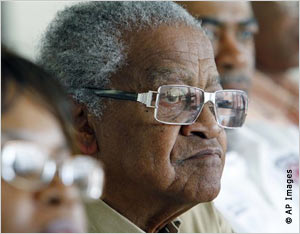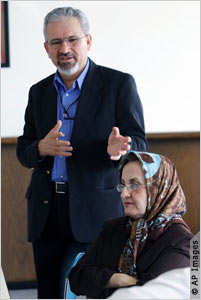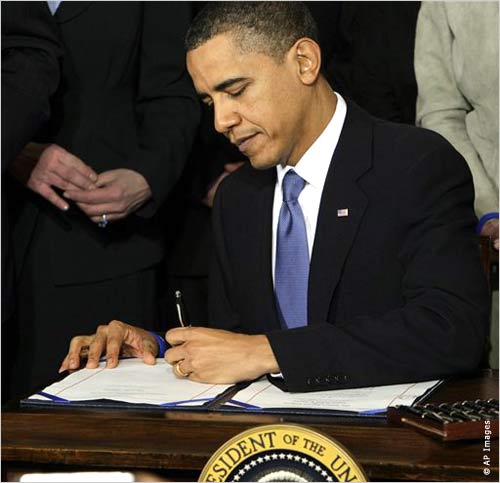Busy in Brussels, Secretary Clinton discusses NATO and Pakistan. There’s hope ahead of a crucial vote in Sudan. A new initiative is spurring interfaith action to improve Muslim countries. China and the U.S. are partnering on air quality. Counterfeit drugs are a pandemic. And finally, experts call for a “paradigm shift” in health care in Africa.
 NATO’s 21st Century Threats
NATO’s 21st Century Threats
Secretary of State Hillary Rodham Clinton and Defense Secretary Robert Gates urges members of the North Atlantic Treaty Organization to focus on 21st century threats such as terrorism, cyber attacks and ballistic missiles. “Relying on the strategies of the past simply will not suffice” says Clinton, right with Gates. The two also express support for the alliance’s proposed Strategic Concept.
Taxing Pakistan’s Wealthy
Secretary of State Hillary Rodham Clinton urges Pakistan to collect taxes on its wealthier citizens in order to help pay for the country’s recovery from flooding that could ultimately cost tens of billions of dollars.
The Timeline in Sudan
Following a week-long visit to southern Sudan, U.S. Ambassador to the United Nations Susan Rice reports that the Sudanese people remain hopeful ahead of a January 9, 2011 referendum on the region’s independence.
“Partners for a New Beginning”
Partners for a New Beginning (PNB), an initiative joining American private sector and civil society leaders to strengthen opportunities in Muslim countries, adds further support to President Obama’s vision of “a new beginning” for the United States and Muslim communities across the globe.
A U.S.-China Success Story
AirNow International, a joint U.S.-China air quality program, is cited as a bilateral success by U.S. Environmental Protection Agency (EPA) Administrator Lisa P. Jackson during a visit to the 2010 World Expo in Shanghai.
The Danger of Counterfeit Drugs
The key to fighting a global “pandemic” of counterfeit drugs is building partnerships among drug companies, pharmaceutical trade groups, law enforcement and customs officials worldwide, experts say. Rubie Mages, a security official with U.S. drug manufacturer Pfizer, says pharmaceutical companies must “monitor the supply chain” and report counterfeit drugs to authorities.
 Changing Health Care in Africa
Changing Health Care in Africa
Experts say a “paradigm shift” is needed in health care in Africa to include greater focus on the prevention and treatment of noncommunicable diseases like diabetes and not just infectious diseases like HIV/AIDS. Silver Bahendeka, chair of the International Diabetes Association’s Africa region, predicts that “Africa will have the highest percentage of increase in the number of people with diabetes over the next 20 years.” Left, Archbishop Desmond Tutu is examined for diabetes in South Africa.







